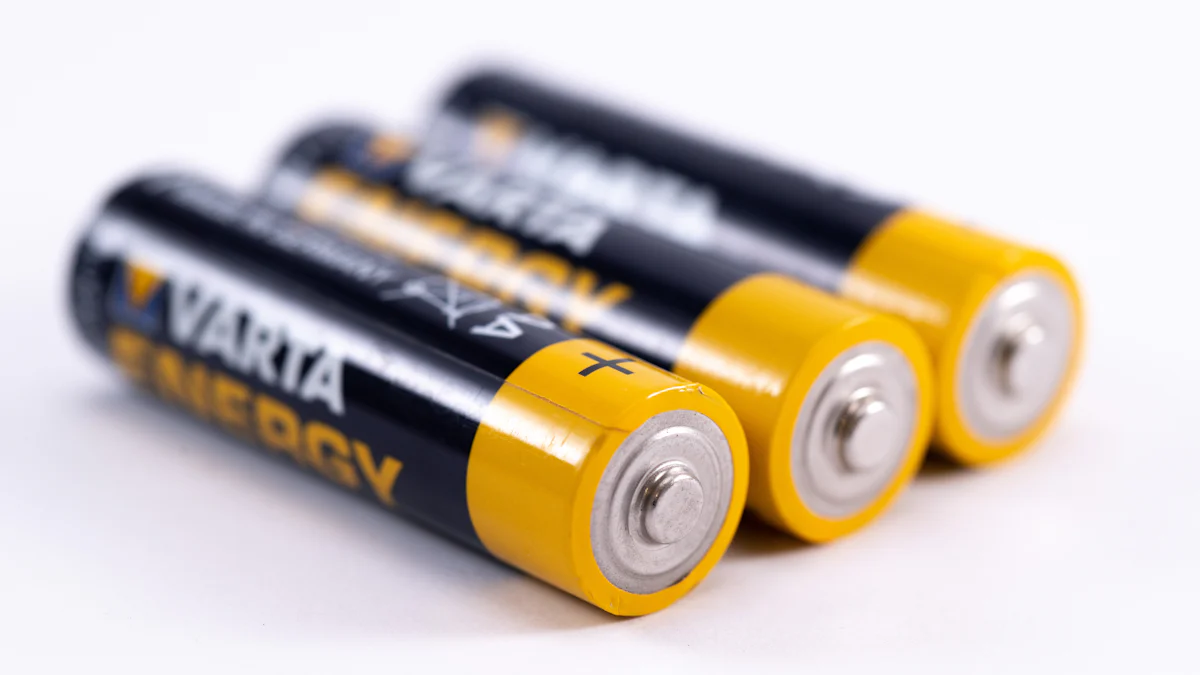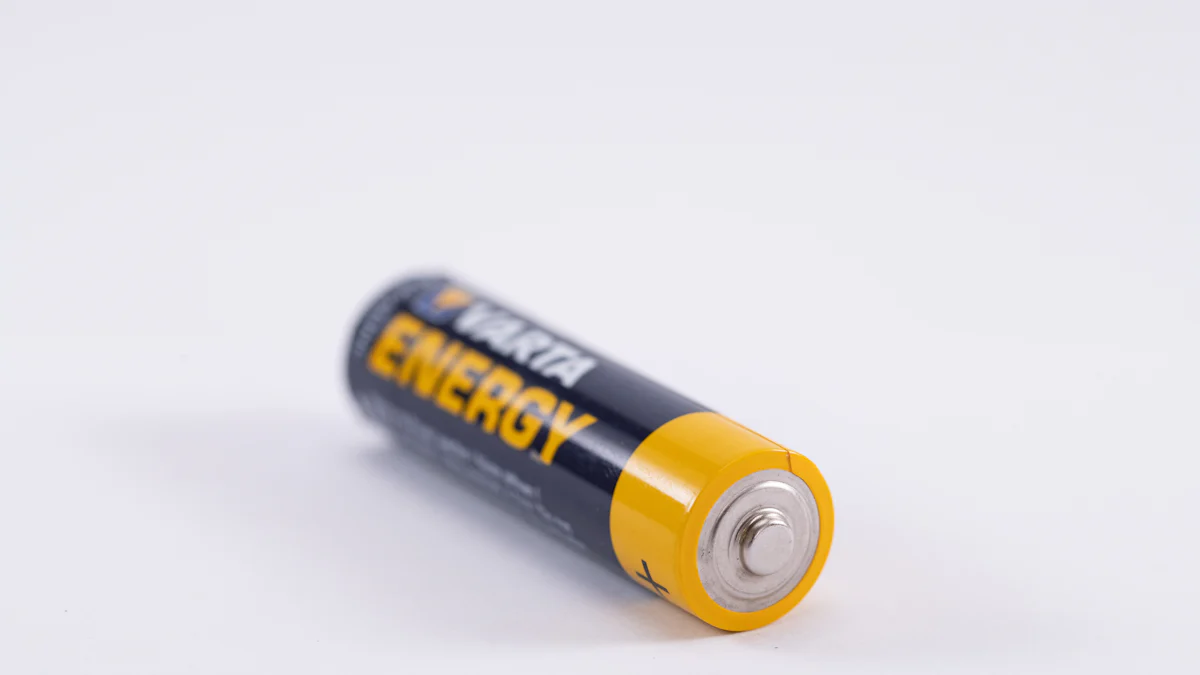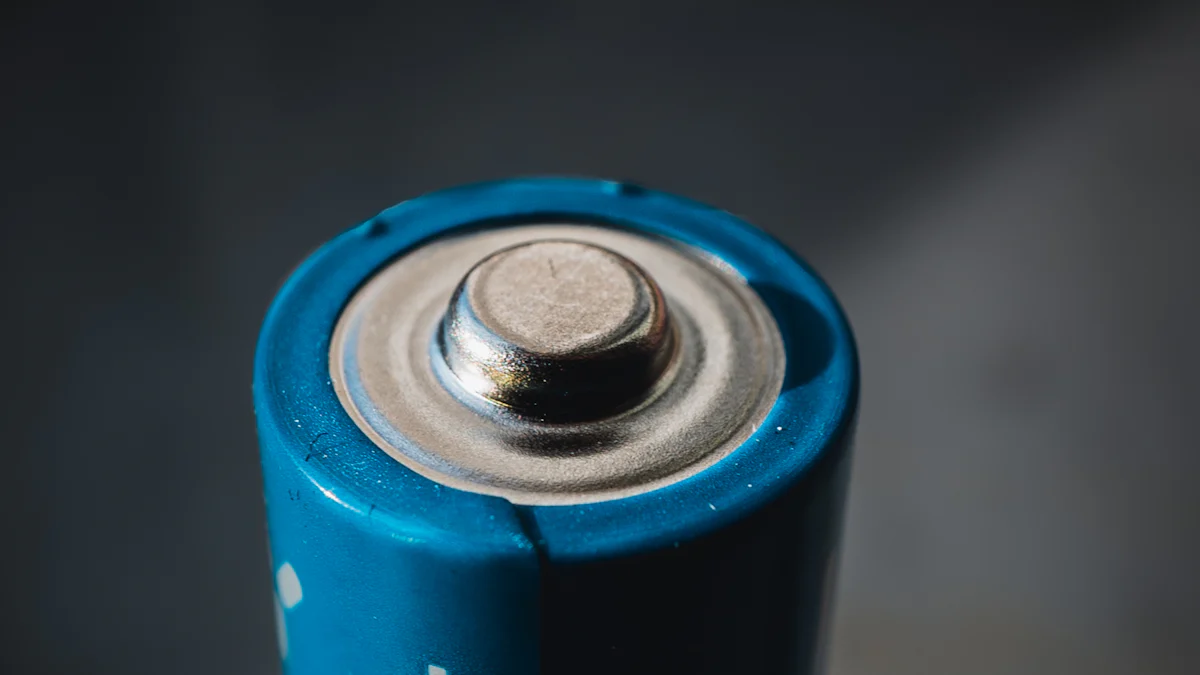
When it comes to choosing between zinc chloride and alkaline batteries, I often find myself considering their energy density and lifespan. Alkaline batteries generally outperform zinc chloride ones in these areas. They deliver higher energy density, making them ideal for high-drain devices. This means they can store more energy, providing longer usage times. Additionally, alkaline batteries tend to last longer, reducing the need for frequent replacements. These characteristics make them a preferred choice for many applications, ensuring reliability and efficiency.
Key Takeaways
- Alkaline batteries outperform zinc chloride batteries in energy density, making them ideal for high-drain devices like digital cameras and game consoles.
- Zinc chloride batteries are cost-effective and best suited for low-drain devices such as remote controls and wall clocks.
- Alkaline batteries typically last up to three years, reducing the frequency of replacements compared to zinc chloride batteries, which last around 18 months.
- When choosing batteries, consider the energy demands of your devices: use alkaline for high-drain and zinc chloride for low-drain applications.
- Proper disposal and recycling of both battery types are essential to minimize environmental impact and promote sustainability.
- Alkaline batteries are more environmentally friendly as they do not contain heavy metals like mercury or cadmium, making them a safer choice for eco-conscious consumers.
Overview of Zinc Chloride and Alkaline Batteries
Understanding the differences between zinc chloride and alkaline batteries helps in making informed decisions for various applications. Each type of battery has unique characteristics that cater to specific needs.
What are Zinc Chloride Batteries?
Zinc chloride batteries, often referred to as heavy-duty batteries, serve as a cost-effective power source for low-drain devices. These batteries utilize zinc chloride as an electrolyte, which influences their performance and lifespan. I find them suitable for devices like remote controls and clocks, where energy demands remain minimal. Despite their affordability, zinc chloride batteries tend to dry out faster due to the production of zinc oxychloride, which consumes water molecules. This characteristic limits their effectiveness in high-drain applications.
What are Alkaline Batteries?
Alkaline batteries, on the other hand, offer a higher energy density, making them ideal for high-drain devices. They use potassium hydroxide as an electrolyte, which allows them to deliver more power when needed. I often rely on alkaline batteries for gadgets like digital cameras and portable game consoles, where consistent and robust energy output is crucial. Their longer lifespan and ability to handle high current discharge make them a preferred choice for many users. Additionally, alkaline batteries generally have a longer shelf life, lasting about three years, which reduces the frequency of replacements.
Energy Density Comparison

When I evaluate batteries, energy density stands out as a crucial factor. It determines how much energy a battery can store relative to its size. This aspect significantly influences the performance and suitability of batteries for various applications.
Energy Density of Zinc Chloride Batteries
Zinc chloride batteries, often labeled as heavy-duty, offer a moderate energy density. They serve well in low-drain devices where energy demands remain minimal. I find them suitable for gadgets like remote controls and wall clocks. These batteries provide a cost-effective solution for such applications. However, their energy density falls short when compared to alkaline batteries. The production of zinc oxychloride in these batteries leads to faster drying out, which limits their effectiveness in high-drain scenarios.
Energy Density of Alkaline Batteries
Alkaline batteries excel in energy density, making them a preferred choice for high-drain devices. They store more energy, allowing for longer usage times. I often rely on alkaline batteries for devices like digital cameras and portable game consoles. Their composition, utilizing potassium hydroxide as an electrolyte, contributes to their superior energy storage capabilities. Alkaline batteries typically offer 4-5 times the energy density of zinc chloride batteries. This characteristic ensures they deliver consistent and robust power output, meeting the demands of modern electronic devices.
Lifespan and Performance
Understanding the lifespan and performance of batteries is crucial when selecting the right type for your needs. I often consider how long a battery will last and how well it performs under different conditions. This section delves into the lifespan of zinc chloride and alkaline batteries, providing insights into their performance characteristics.
Lifespan of Zinc Chloride Batteries
Zinc chloride batteries, commonly known as heavy-duty batteries, typically have a shorter lifespan compared to their alkaline counterparts. I find that these batteries last around 18 months under normal usage conditions. Their lifespan is influenced by the chemical reactions within the battery, which can lead to faster drying out. The production of zinc oxychloride consumes water molecules, reducing the battery’s longevity. Despite their shorter lifespan, zinc chloride batteries offer a cost-effective solution for low-drain devices, where frequent replacements are less of a concern.
Lifespan of Alkaline Batteries
Alkaline batteries, on the other hand, boast a longer lifespan, often lasting up to three years. This extended lifespan makes them a reliable choice for high-drain devices, where consistent power output is essential. I appreciate the durability of alkaline batteries, as they reduce the need for frequent replacements. Their superior performance stems from the use of potassium hydroxide as an electrolyte, which enhances their ability to endure multiple cycles. This characteristic ensures that alkaline batteries maintain their efficiency over time, providing a dependable power source for various applications.
Suitable Applications
Choosing the right battery for specific applications can significantly impact performance and cost-effectiveness. I often consider the unique characteristics of zinc chloride and alkaline batteries to determine their best uses.
Best Uses for Zinc Chloride Batteries
Zinc chloride batteries, known for their affordability, serve well in low-drain devices. I find them ideal for gadgets like remote controls, wall clocks, and simple flashlights. These devices do not demand high energy output, making zinc chloride batteries a cost-effective choice. Their moderate energy density suits applications where power consumption remains minimal. Despite their shorter lifespan, these batteries provide a reliable power source for devices that do not require frequent replacements.
Best Uses for Alkaline Batteries
Alkaline batteries excel in high-drain applications due to their superior energy density. I rely on them for devices such as digital cameras, portable game consoles, and wireless keyboards. These gadgets demand consistent and robust power output, which alkaline batteries deliver efficiently. Their longer lifespan reduces the need for frequent replacements, offering convenience and reliability. Additionally, alkaline batteries perform well in a wide range of temperatures, making them suitable for outdoor equipment and emergency kits. Their versatility and durability make them a preferred choice for many users.
Environmental Impact and Safety

When I consider the environmental impact of batteries, I find it essential to evaluate their composition and disposal implications. Both zinc chloride and alkaline batteries have distinct environmental considerations that influence their suitability for eco-conscious consumers.
Environmental Considerations for Zinc Chloride Batteries
Zinc chloride batteries, often labeled as heavy-duty, present certain environmental challenges. These batteries contain materials that can pose risks if not disposed of properly. The production of zinc oxychloride, a byproduct of these batteries, can contribute to environmental degradation if released into ecosystems. I always recommend proper recycling and disposal methods to mitigate these risks. Additionally, zinc chloride batteries may contain trace amounts of heavy metals, which necessitate careful handling to prevent soil and water contamination.
Environmental Considerations for Alkaline Batteries
Alkaline batteries offer a more environmentally friendly option compared to some other battery types. They do not contain heavy metals like mercury or cadmium, which are found in some carbon zinc variants. This absence of hazardous materials makes alkaline batteries a preferable choice for those concerned about environmental impact. I appreciate that alkaline batteries can be disposed of with less risk to the environment, though recycling remains the best practice. Their longer lifespan also means fewer batteries end up in landfills, reducing overall waste. For eco-conscious consumers, alkaline batteries provide a balance between performance and environmental responsibility.
In my exploration of zinc chloride and alkaline batteries, I found that alkaline batteries consistently outperform in terms of energy density and lifespan. They excel in high-drain applications, offering reliability and efficiency. Zinc chloride batteries, while cost-effective, suit low-drain devices better. For typical usage scenarios, I recommend alkaline batteries for gadgets requiring robust power and longevity. Zinc chloride batteries remain a viable option for less demanding devices. This balance ensures optimal performance and cost-effectiveness across various applications.
FAQ
What are the two main battery categories?
The two main battery categories are lithium-ion and lead-acid. Each category serves different applications and offers unique benefits. Lithium-ion batteries provide high energy density and long lifespan, making them ideal for portable electronics and electric vehicles. Lead-acid batteries, on the other hand, are often used in automotive and backup power systems due to their reliability and cost-effectiveness.
What is an AGM battery?
An AGM (Absorbent Glass Mat) battery is a type of lead-acid battery. It falls under the category of deep-cycle VRLA (valve-regulated lead acid) batteries. AGM batteries use a special glass mat to absorb the electrolyte, which makes them spill-proof and maintenance-free. I find them particularly useful in applications requiring high power output and durability, such as marine and RV systems.
How do zinc chloride batteries differ from alkaline batteries?
Zinc chloride batteries, often called heavy-duty batteries, use zinc chloride as an electrolyte. They are cost-effective and suitable for low-drain devices like remote controls. Alkaline batteries, however, use potassium hydroxide as an electrolyte, providing higher energy density and longer lifespan. I prefer alkaline batteries for high-drain devices like digital cameras due to their superior performance.
Why do alkaline batteries last longer than zinc chloride batteries?
Alkaline batteries last longer because they have a higher energy density and can handle high current discharge better. Their composition allows them to store more energy and deliver consistent power over time. This makes them ideal for devices that require sustained energy output. Zinc chloride batteries, while affordable, tend to dry out faster, limiting their lifespan.
Are alkaline batteries environmentally friendly?
Alkaline batteries are more environmentally friendly compared to some other battery types. They do not contain heavy metals like mercury or cadmium, reducing their environmental impact. I always recommend recycling alkaline batteries to minimize waste and promote sustainability. Their longer lifespan also means fewer batteries end up in landfills.
What are the best uses for zinc chloride batteries?
Zinc chloride batteries work best in low-drain devices where energy demands remain minimal. I find them ideal for gadgets like remote controls, wall clocks, and simple flashlights. These applications do not require high energy output, making zinc chloride batteries a cost-effective choice.
Can I use alkaline batteries in all devices?
While alkaline batteries excel in high-drain applications, they may not be suitable for all devices. Some devices, especially those designed for rechargeable batteries, may not perform optimally with alkaline batteries. I recommend checking the device specifications to ensure compatibility and optimal performance.
How should I dispose of zinc chloride and alkaline batteries?
Proper disposal of batteries is crucial to minimize environmental impact. I suggest recycling both zinc chloride and alkaline batteries at designated recycling centers. This helps prevent harmful materials from entering the environment and promotes sustainable practices. Always follow local regulations for battery disposal to ensure safety and compliance.
Do zinc chloride batteries have any safety concerns?
Zinc chloride batteries, like all batteries, require proper handling to ensure safety. They may contain trace amounts of heavy metals, necessitating careful disposal. I advise storing them in a cool, dry place and avoiding exposure to extreme temperatures. Proper recycling and disposal help mitigate potential environmental risks.
How do I choose between zinc chloride and alkaline batteries?
Choosing between zinc chloride and alkaline batteries depends on the device’s energy requirements and usage frequency. For low-drain devices, zinc chloride batteries offer a cost-effective solution. For high-drain devices, I recommend alkaline batteries for their superior energy density and longer lifespan. Consider the specific needs of your device to make an informed decision.
Post time: Dec-18-2024




